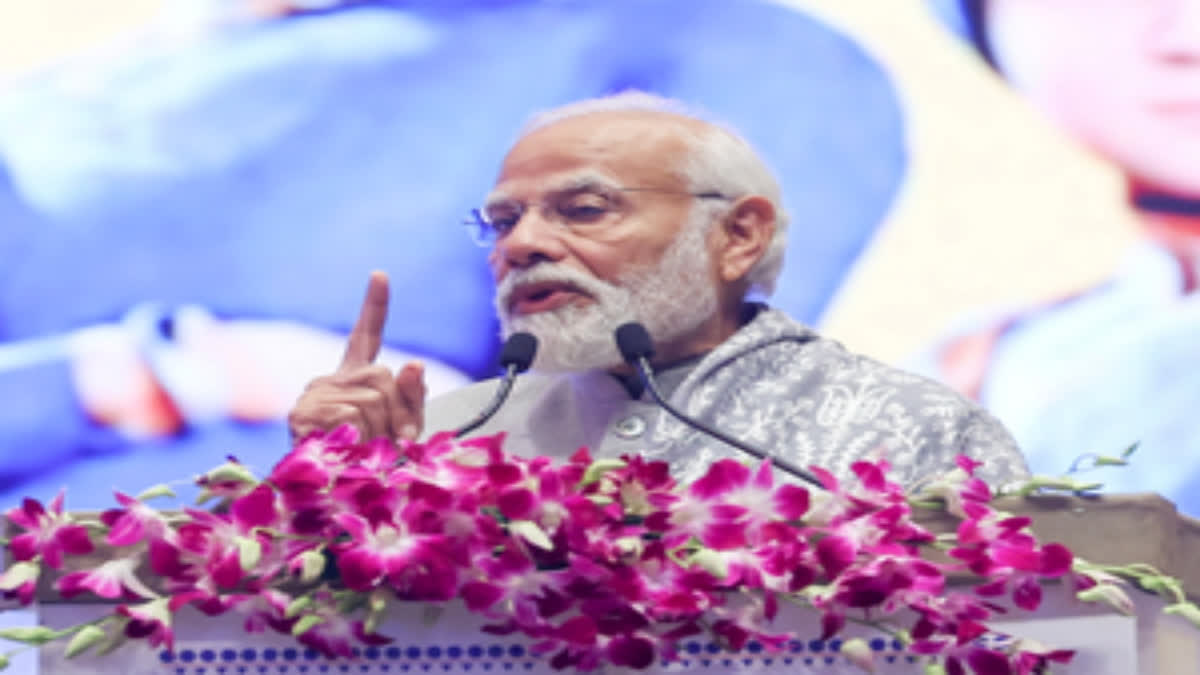New Delhi: In a year bookended by geopolitical turmoil and great power rivalry, India demonstrated its statecraft in turbocharging a fragmented G20 in adopting with consensus an ambitious roadmap to address major global challenges, and pursued a steely approach to expand its strategic heft in the neighbourhood and beyond in the face of China's increasingly aggressive behaviour.
Induction of the 55-nation African Union as a permanent member of the G20 and managing to produce a leaders' declaration overcoming deep divisions over the Ukraine conflict were seen as major milestones of India's year-long presidency of the grouping of the world's 20 big economies in 2023.
It was for the first time that India hosted the annual G20 summit and New Delhi pulled out all stops in rolling out a grand welcome to top leaders of the bloc including US President Joe Biden, German Chancellor Olaf Scholz, French President Emmanuel Macron and British Prime Minister Rishi Sunak. Chinese President Xi Jinping and Russia's Vladimir Putin skipped the summit.
Under its year-long G20 presidency that ended on November 30, India hosted over 200 meetings in around 60 cities across the country focusing on a variety of issues like inclusive growth, digital innovation, climate financing and equitable global health access with an aim largely to benefit the Global South or the developing countries.
"The 21st century is a time that has the potential to give a new direction to the entire world," Prime Minister Narendra Modi said at the G20 summit. The G20 New Delhi leaders' declaration comprised about 83 paras and 87 outcomes covering a wide range of areas for cooperation as well as possible solutions to some of the pressing global challenges including in areas of renewable energy and climate change.
The cherry on top was an announcement on the sidelines of the G20 summit to roll out an ambitious economic corridor encompassing rail and shipping networks among Saudi Arabia, India, the United States and the European Union that was billed as a game-changer. The India-Middle East-Europe Economic Corridor (IMEC) is also seen as an initiative by like-minded nations to gain strategic influence in the face of China's Belt and Road Initiative (BRI) that has faced increasing criticism over lack of transparency and disregard for sovereignty of the nations.
In the overall policy framework, India maintained its clear approach towards ensuring a free, open and inclusive Indo-Pacific against the backdrop of the geo-political turmoil and great power rivalry between the US and Russia-China combine.
The year 2023 also saw India continuing its firm resolve to fashion a regional environment conducive to its strategic interests in the face of China's aggressive military posturing including in eastern Ladakh, as well as Chinese Navy's increasing forays into the Indian Ocean region.
In line with its policy on China, India maintained that the relations between the two countries cannot be normal if peace and tranquillity in border areas is disturbed.
In August, Modi and Xi held a brief and informal conversation in Johannesburg on the sidelines of the BRICS (Brazil, Russia, India, China, South Africa) summit. In the interaction, Modi conveyed to Xi India's concerns on the "unresolved" issues along the Line of Actual Control in eastern Ladakh, underlining that maintenance of peace and tranquillity in border areas was essential for normalisation of India-China ties.
In line with its priorities for the developing nations, especially the African continent, India hosted two virtual Global South summits, the first one in January and the second in November with a view to overcome challenges posed by various global developments and ways to ensure a more inclusive world order.
